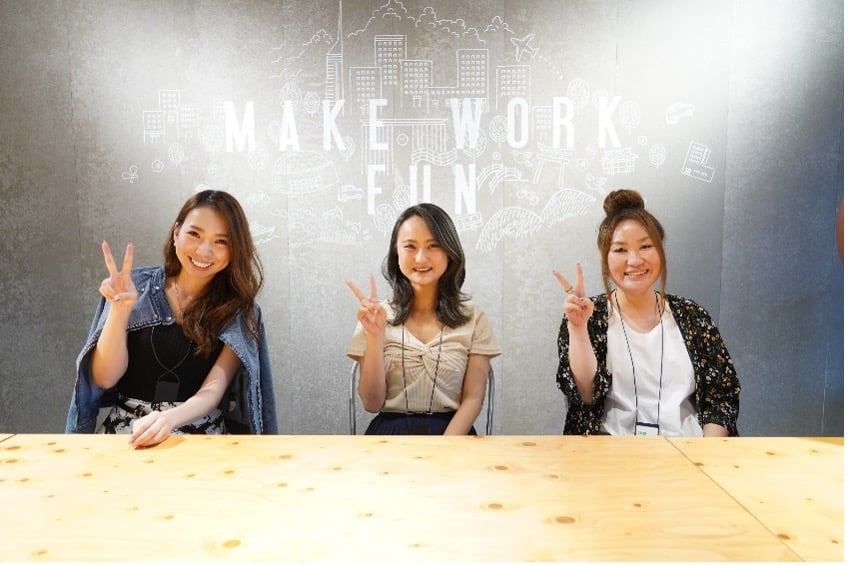[Top Marketing Talks Part 1] Fukuoka and LINE Fukuoka from a Marketing Angle
![[Top Marketing Talks Part 1] Fukuoka and LINE Fukuoka from a Marketing Angle サムネイル画像](https://blog.lycomm.co.jp/hubfs/Imported_Blog_Media/4f9ed8f1-1.jpg)
[Notice] Effective October 1, 2023, LINE Fukuoka has changed its company name to LY Communications. Articles published on or before September 30, 2023 were written with our former company name.
※This article was updated on March 30, 2020.
This is Saori Yuge with the LINE Fukuoka Press blog.
We here at LINE Fukuoka Press heard that LINE's CSMO, Mr. Jun Masuda, was coming to Fukuoka for the first time in a while, and were curious about what a conversation between him and our COO, Mr. Yusuke Suzuki, would be like, so we sat down with them for an interview. We'll be bringing you the interview in two parts!
The theme for the first part is "Fukuoka and LINE Fukuoka from a marketing angle." Both gentlemen, who built their careers in the marketing and communication fields, seem to have discovered the appeal of the "unique" for the city of Fukuoka as well as LINE Fukuoka.
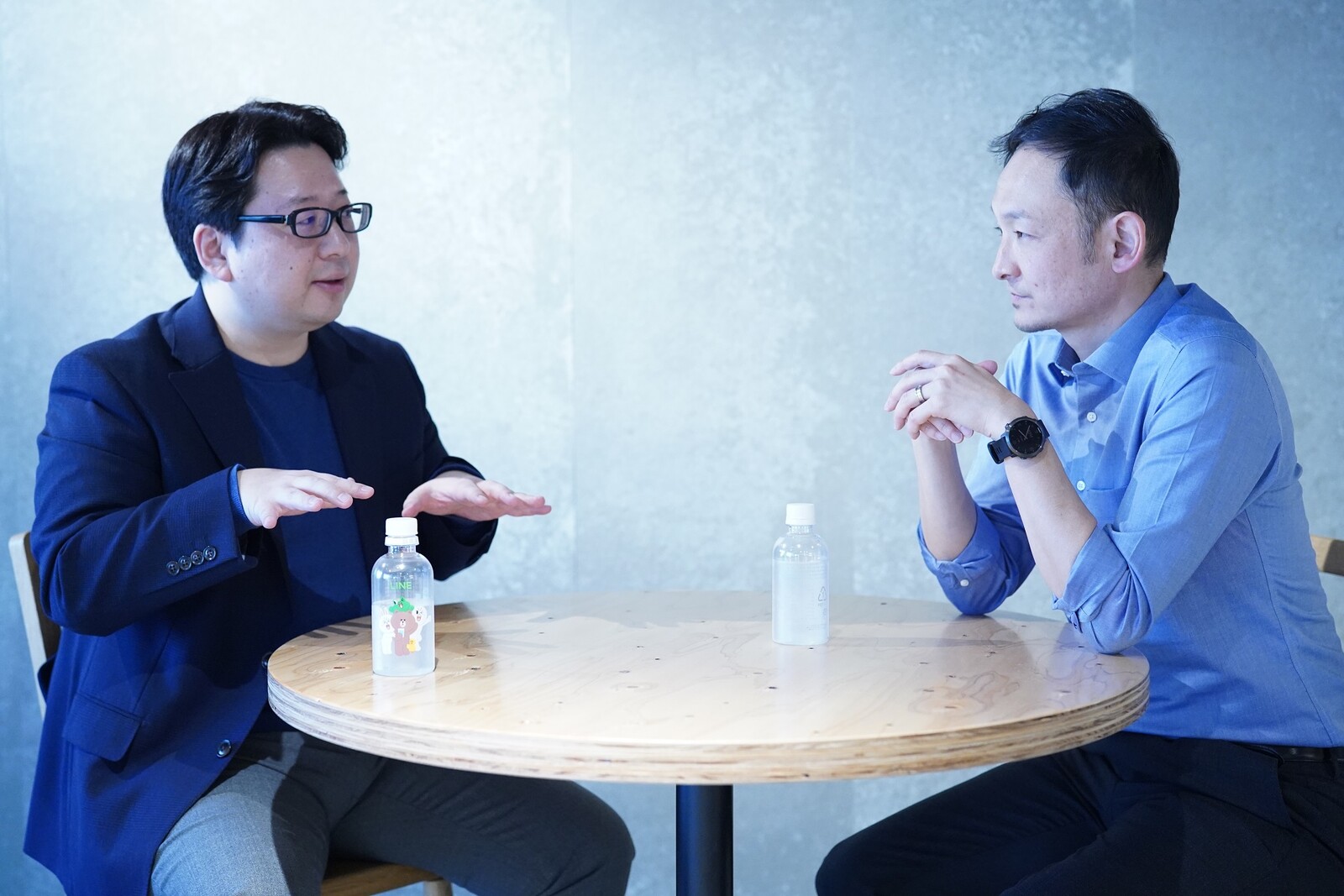
Fukuoka's infrastructure for creating popularity
- Please tell us about the kind of impression you have of Fukuoka from a marketing perspective.
Masuda: Fukuoka City has an infrastructure for creating popularity. The city is built so that features are concentrated in certain areas, and from a marketing standpoint, that's a really good framework.
For example, you can create trends because there are certain patterns like, "If you're going out, go to Tenjin." So it's easier for network effects to be felt. And when you take an action, more people see it, so it's also a city that gives you a high return on investment (ROI).
If the same population were in a broader area, then the hot spots would be spread out, and it would actually make things really difficult. Fukuoka's also one of the major gateways into Japan, and another characteristic of the city is that a lot of people are constantly coming from both within and outside of Japan.
On top of that, it's a lively city. If a town isn't lively, then no matter what you're thinking about doing, you have to start from a place of trying to impart that energy. In Fukuoka's case, the city continually invigorates itself, so it's really attractive for marketing.
I think that these conditions are a big part of why Fukuoka was chosen as LINE's second domestic base.
Suzuki: I think you're exactly right. To add onto that, Fukuoka doesn't have many traditional industries, like Aichi's automotive industry. There's a sense of danger that if we don't keep building new intellectual industries, then we can't remain in Fukuoka, the town we all love.
I think that's exactly why people in Fukuoka aren't closed off; they accept new things, and there's an atmosphere that people in the city have to keep evolving, too.
Masuda: People here are open-minded.
Suzuki: Right.
Masuda: When you're trying to innovate, if something similar already exists, then you're bound to clash with it. Momentum always builds around trying to preserve existing industries, companies, and the status quo, but I don't really feel that in Fukuoka. There's an atmosphere of giving new things a try, and I think that's been growing even stronger recently.
Suzuki: There's also a geographical necessity. Like how you called Fukuoka a "gateway" earlier, we're also in a location that's easy to access from overseas, Tokyo or Osaka. We understand that we grow by exchanging knowledge and culture with people from outside the city, and that's why we're open-minded.
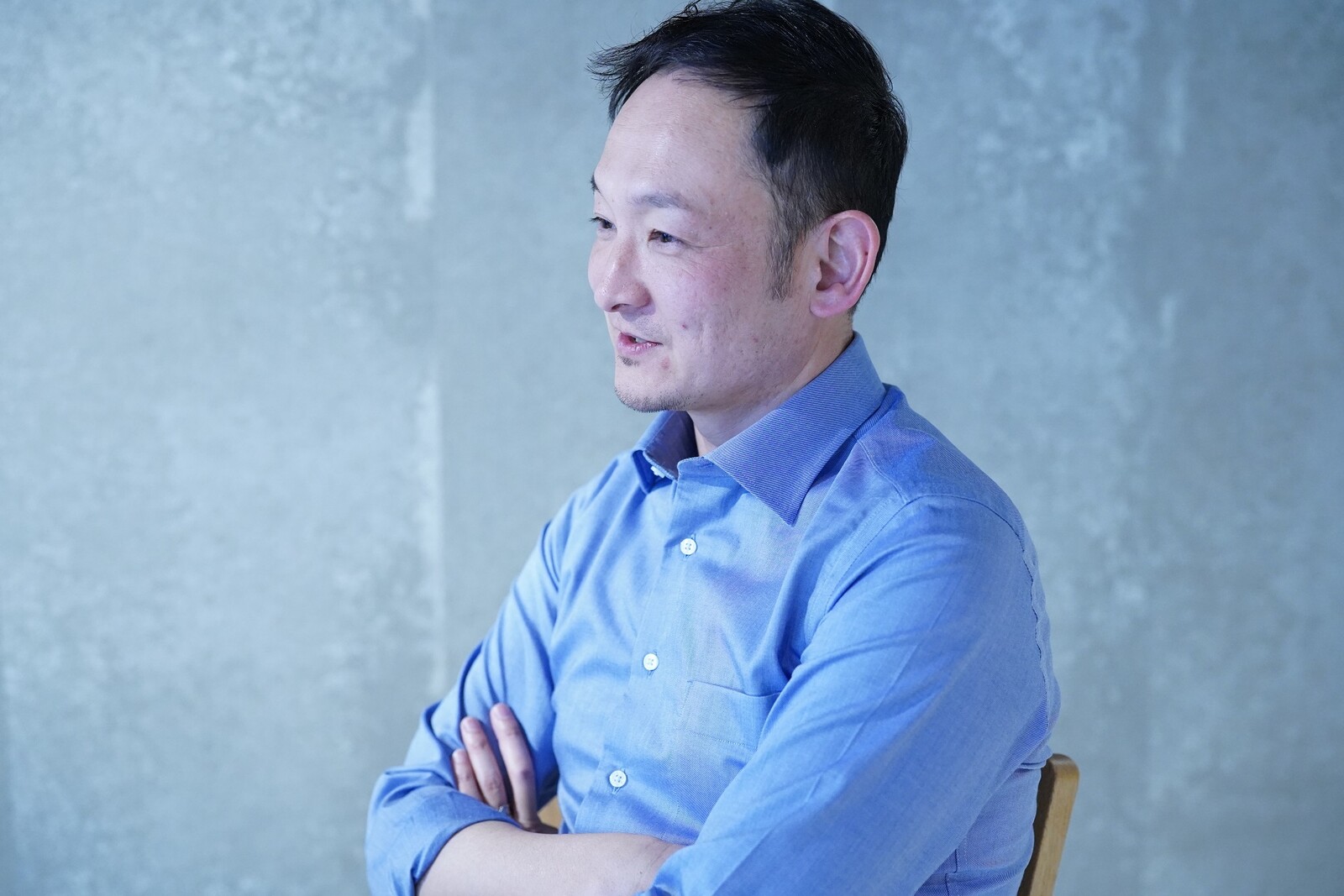
The critical period of gaining the "first fan"
- For the past few years, LINE Fukuoka has taken on some of the marketing functionality in LINE’s services. Please tell us about the intent behind Fukuoka taking on these activities.
Masuda: First of all, LINE Fukuoka's role changes as LINE itself changes. In LINE Fukuoka's first phase as the "second headquarters," we started with operations first, and then added the Development and Creative departments.
In phase two, we added the role of looking at Fukuoka as a market, and the background for that was the change of LINE's targets expanding from online only to include offline ones as well.
When we were only targeting the online market, we could do all the marketing from Tokyo. But through our visions in 2017 of creating a "Smart Portal" and in 2019 of achieving "Life on LINE," we're trying to make LINE a super app.
The instant we added offline marketing, it created the roles of area marketing in Fukuoka City and test marketing utilizing the area's unique advantages for the LINE Fukuoka team.
Suzuki: Right. A lot of people ask me what the difference between LINE and LINE Fukuoka is, but the basic premise is that we're facing the same direction as the LINE Group. And that direction isn't just facing "LINE in Tokyo." We're always thinking about how LINE Fukuoka can contribute based on how LINE is changing or how the service might change.
And as you said before, the online market expanding was one reason we also started marketing. Of course people in Tokyo know about Tokyo, but a lot of people in Japan don't live there. I thought that our role might be understanding what people outside of Tokyo are thinking and how they're using LINE’s services, and reflecting that in the services.
Masuda: Right, and there's one more perspective to add to that. Speaking in terms of marketing and service trends, taking a one-size-fits-all approach to target markets isn't something you can do anymore.
For example, even if you want to make a service that's used by everyone, you have to do it step by step. First, you have to get one fan, then aim for 100 fans, and so on.
These people become your core users and spread the passion that was created to others. Your following becomes a big collective, and if that collective continues to gather more users, then gradually you can generate a big user base. LINE grew as a service in the same way.
In the past, you could use mass marketing strategies like TV commercials and reap the benefits to expand rapidly. But now we're in an era where services are copied immediately, so it's important to think about how you can get fans. These are the people who will stick with you exactly because they're fans.
Considering that, the work LINE Fukuoka employees are doing that helps the city's LINE users become fans, including initiatives like the Smart City project, makes a lot of sense.
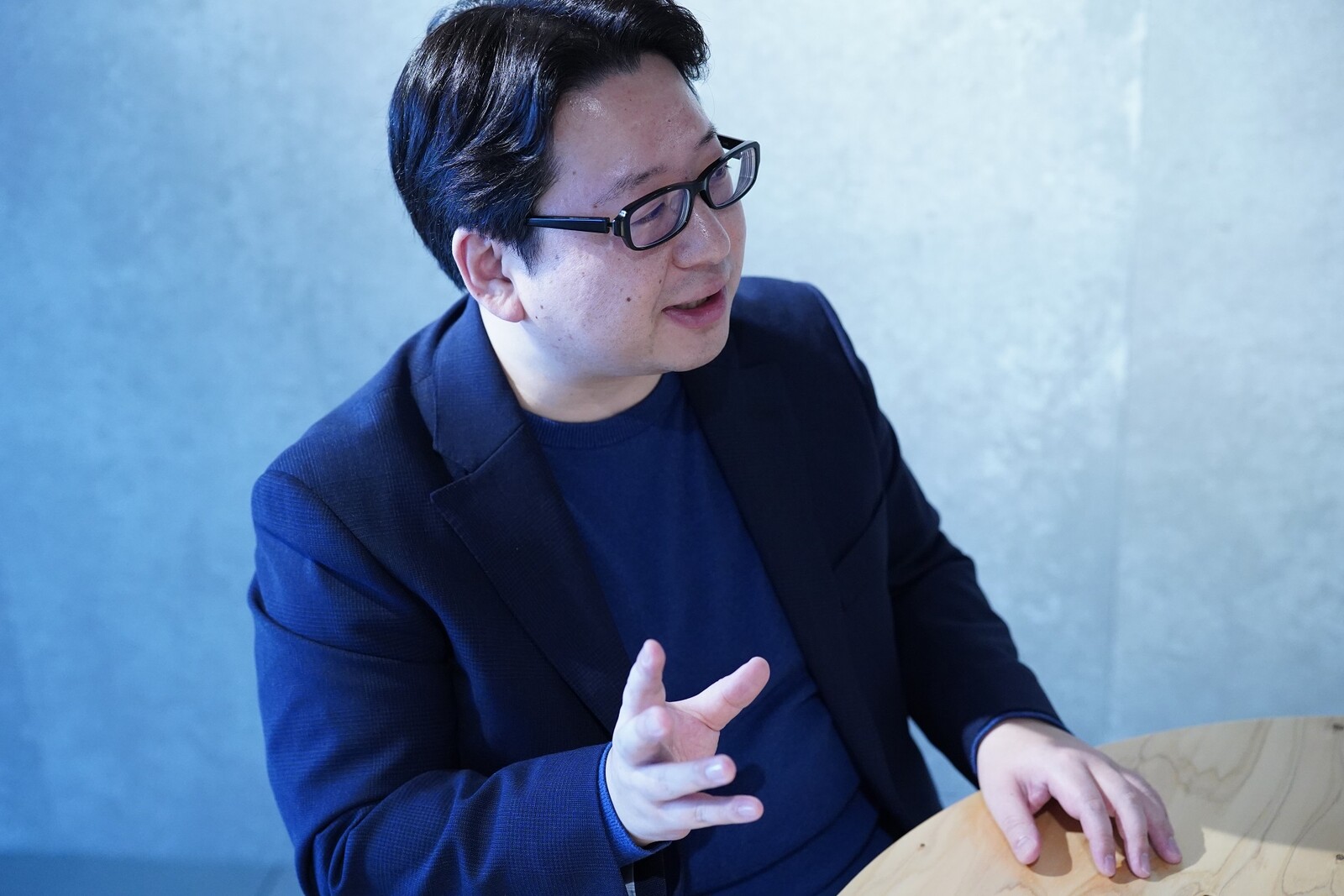
Giving the "one" out of 83 million our full attention
- Both of you have career experience in planning and marketing; please tell us about what you value in planning a project.
Suzuki: I place a lot of importance on how clearly we can see our "targets" and "users."
At my previous company, I worked in corporate recruitment support, and was responsible for both big companies who hire a lot of people as well as small and medium-sized companies who are looking to hire just one person.
When I was only in charge of big companies, I used phrases like "the target," and the image of who that is became more and more blurry. On the other hand, when a company only wanted one person, my thought process changed to thinking about who exactly that person was, and maybe if they were a friend of mine.
That thought process is fundamental in the work I do and is something I place value in. LINE values the idea that "users rule," but when we actually work, the moment we say things like "users," our image of the target blurs. We have to imagine someone specific, whether it be yourself, your spouse, a friend or someone else.
On top of that there's a good chance that the person actually uses LINE, so I think it's important to think about specifics, like, "This person might like this, but they may not like that."
Masuda: There's something that I often tell employees in my messages to the company. If you say, "There are 164 million global users, and 83 million users in Japan," then people see a false reality, as if there's a clump of 83 million users.
But we need to think about the "one" user from that 83 million.
If we aren't conscious of that, then we'll see our users as one uniform block, even though there's no way that should happen. If that happens, we've already deviated from the idea of "users rule."
I also get a lot of proposals like, "We're taking this measure for user group A," but there are times when I doubt whether "user group A" actually exists. "User group A" is probably our ideal users, but where are the people who fits that description, and who are they?
For example, there are over 8,000 employees in the LINE Group. If no one in our organization is a member of "user group A," then that group probably doesn't exist at all.
Public Relations has the same mindset. For example, when we post something on social media, it's important for us to consider who we want that post to reach, what we want them to think about it, and what action we want them to take. If we don't consider that, then all we're left with is flat numbers like how many likes and shares a post has gotten.
T he most important thing is if the post reached the people that it should, and nothing else really matters. In other words, what's important is how conscious we can be of our users as real people.
If you look at it from that perspective, then it means LINE Fukuoka employees are connecting with people in the city each day. The people they pass on the street, classmates, colleagues, family members, partners and so on.
I think having a feel for their lifestyles is a valuable weapon of ours, and the team members in Fukuoka are really perceptive. They immediately grasp changes in the LINE service or our users and spring into action as soon as possible.
Part of that is management's effectiveness, but that backdrop of connecting every day with the people living in Fukuoka is part of it, too.
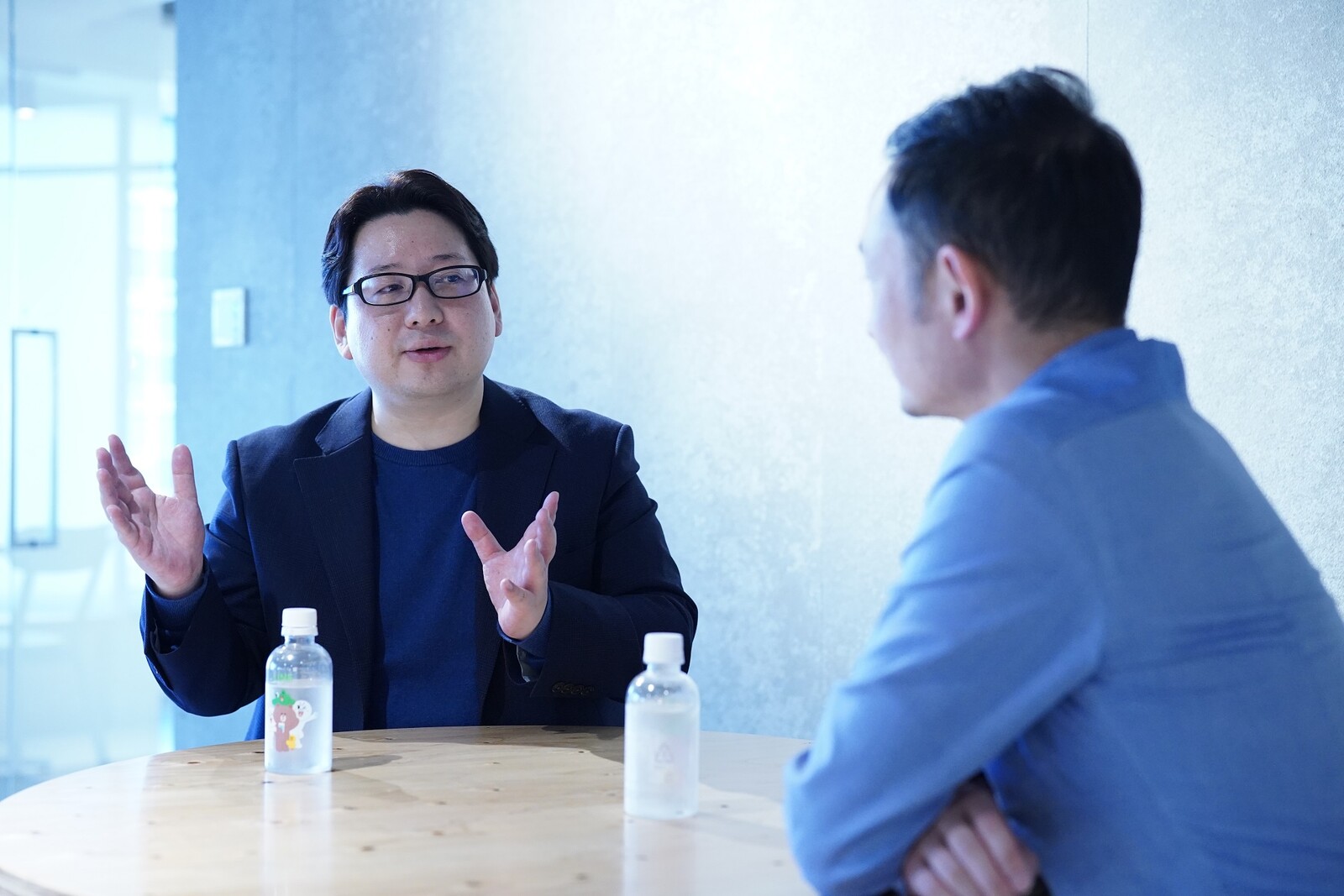
Customer Care and Monitoring are core parts of the LINE service
Suzuki: In addition to that, LINE Fukuoka also handles Customer Care ("CC" below) by responding to inquiries from LINE users. So one of our unique characteristics is that we face our users 24 hours a day, 365 days a year before we do any user research for planning.
That's exactly why the CC team can recognize things like when we're getting a lot of the same inquiries, or if LINE's current reputation is going up or down.
Masuda: CC is on the front lines, and they help users experience a deeper part of the LINE service through their interactions.
I want the CC team members to realize that their work is directly connected to those 83 million users, and the LINE Group as a whole needs to understand how important their connection with users is.
Suzuki: Thank you messages from users are posted in the CC office, but seeing messages like, "Thanks to the CC team, I was able to restore my account!" makes it feel very real. Those words come to us because of the hard work by everyone on the CC team.
Masuda: The actions of everyone on the CC team decide whether or not someone becomes a fan of our services.
For example, no one's going to become a fan if their inquiry is bounced around from one place to another, but everything changes the moment we solve their problem. Even if a user had a negative impression up until then, their relationship with us changes dramatically to feelings of "I got a good response" or "They helped me" the moment we fix their issue.
We often use the term "attitude change" in marketing, and CC is a department that brings about attitude change. They face the users directly and can change how they feel.
Suzuki: There's something that I think is particularly interesting about LINE. Let's think about the CC for this bottled mineral water, for example. First I take a sip, and if I think it tastes funny, I call to make a complaint. The actions I take are separate.
But in our case, if a user thinks something is strange while using LINE’s services, they can make an inquiry in a Chat from the same screen, so they don't think about the boundary between the service and the inquiry. All of the pieces are assembled, and they have the entire experience on LINE.
Of course that's true for CC, but departments like Monitoring (work that prevents inappropriate content from being made public on the internet) are seamlessly connected and integrated as a part of our service.
In terms of raising the value of the LINE service, CC and Monitoring are extremely important. To put it in other words, if we handle a situation poorly, then the value of our service drops, so handling situations well is the same as creating a service.
Masuda: Right. CC and Monitoring are fields where AI is going to be increasingly integrated in the future, but that doesn't mean people are going to lose their current jobs. Rather, AI is going to put us in an advantageous position by handling pre-processing.
And that's exactly why we're going to achieve an environment where we can be more thorough and thoughtful when providing customer care in even deeper places with the potential for attitude change.
Since AI also needs rules to learn, the final decision has to be made by a person. I think the coming era will be one where we consider how to build an infrastructure that generates even more messages of users' gratitude than we now receive, while utilizing new technology.
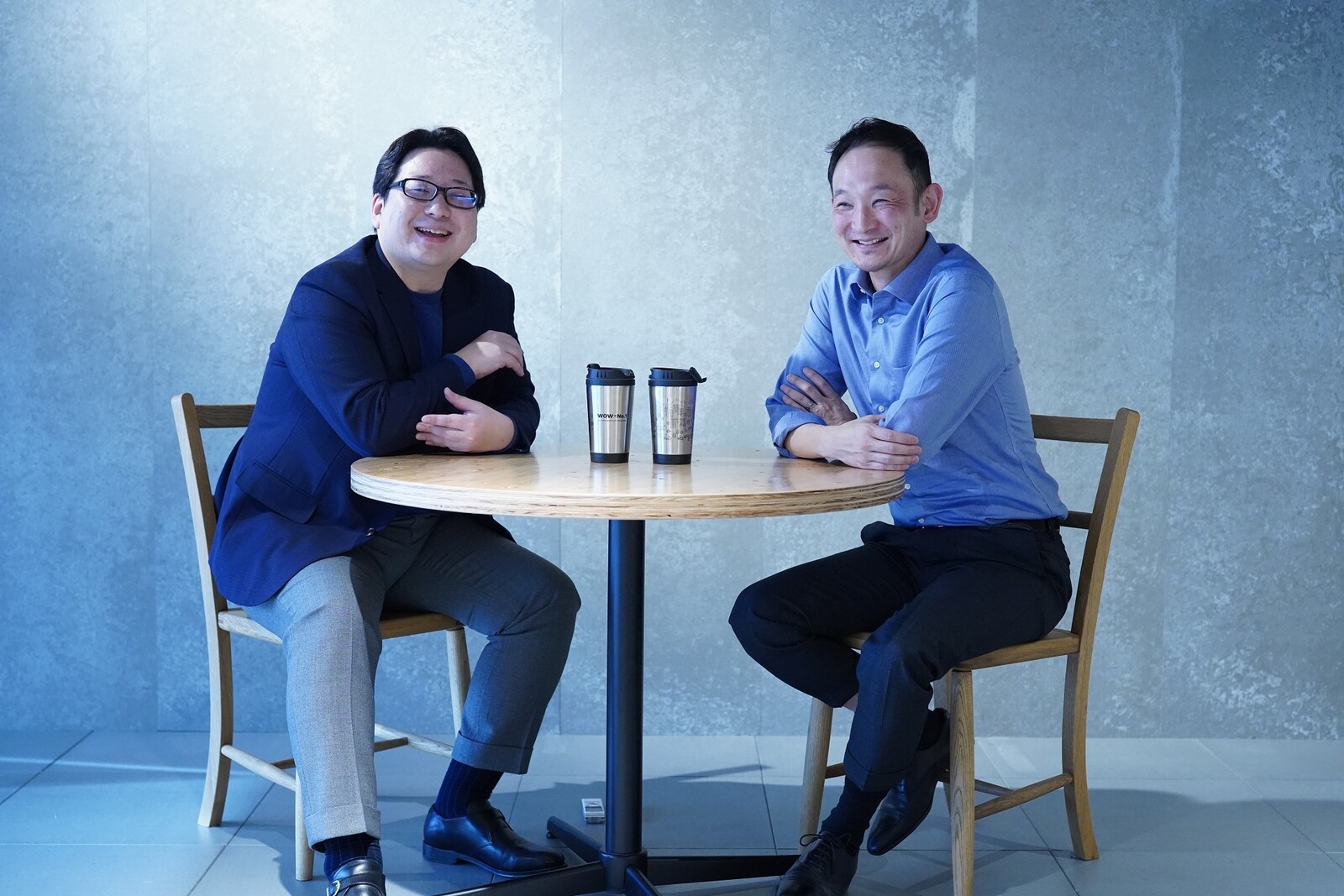
In Part 2, the theme will be "Language and Motives That Drive the Company Forward." We'll be releasing it soon, and hope you'll take the time to read that as well!
Related Articles
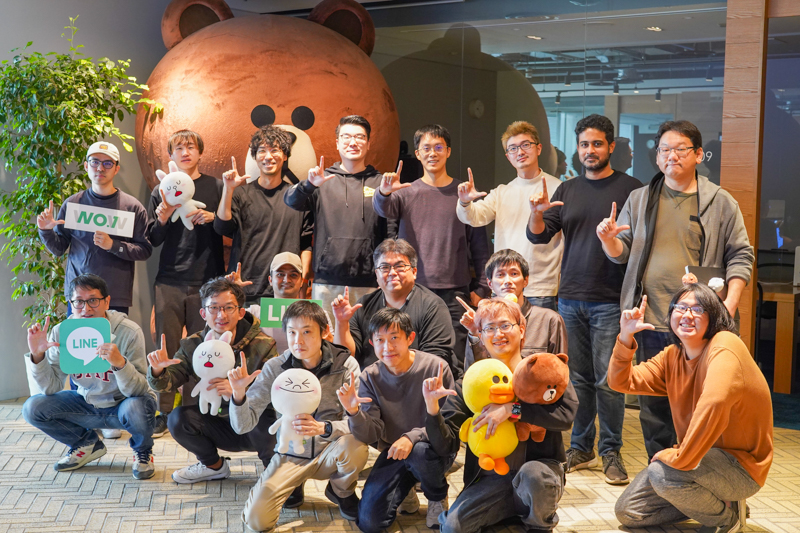
[Event Report] Offline "Office Days" for a Fully Remote and Diverse Development Team
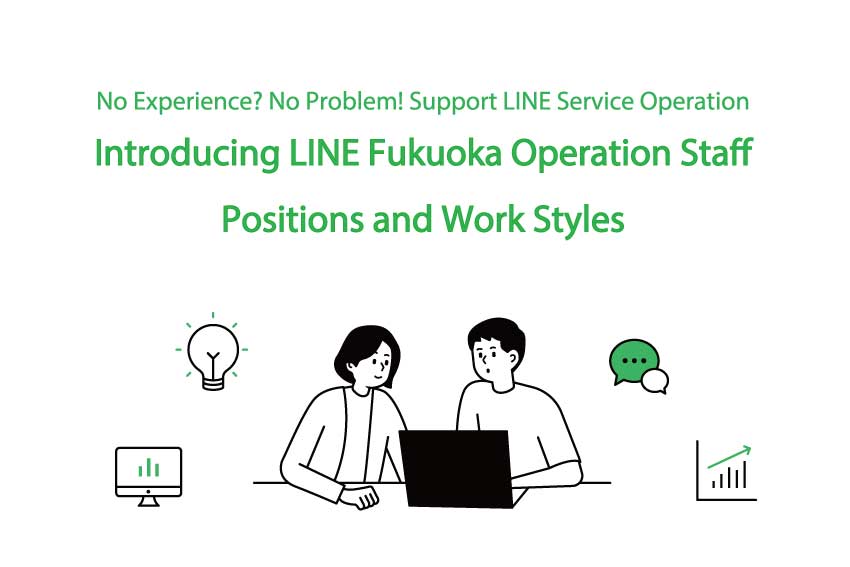
No Experience? No Problem! Introducing LINE Fukuoka Operation Staff Positions and Work Styles
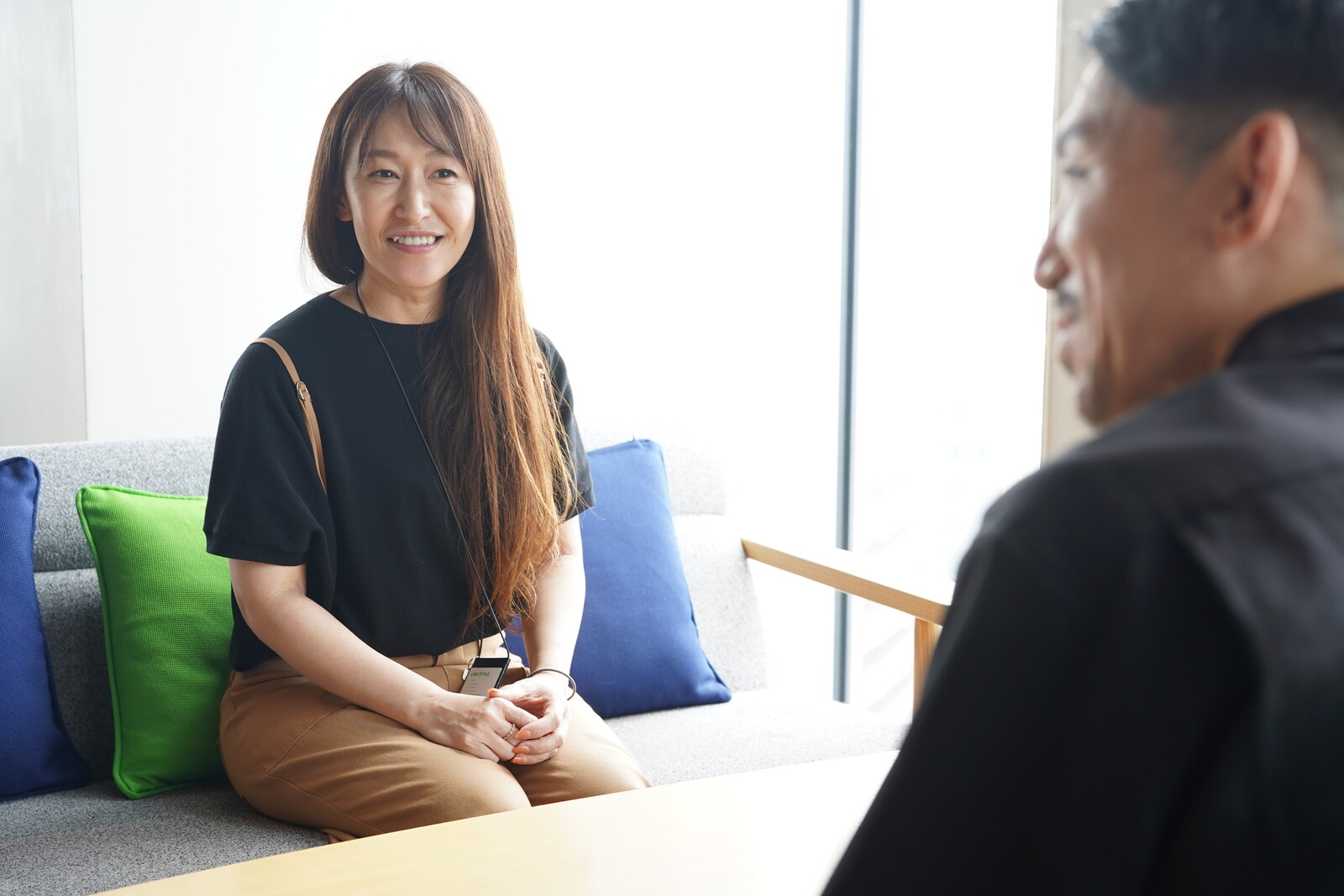
Introducing the Departments that Support the Growth of LINE Search!
